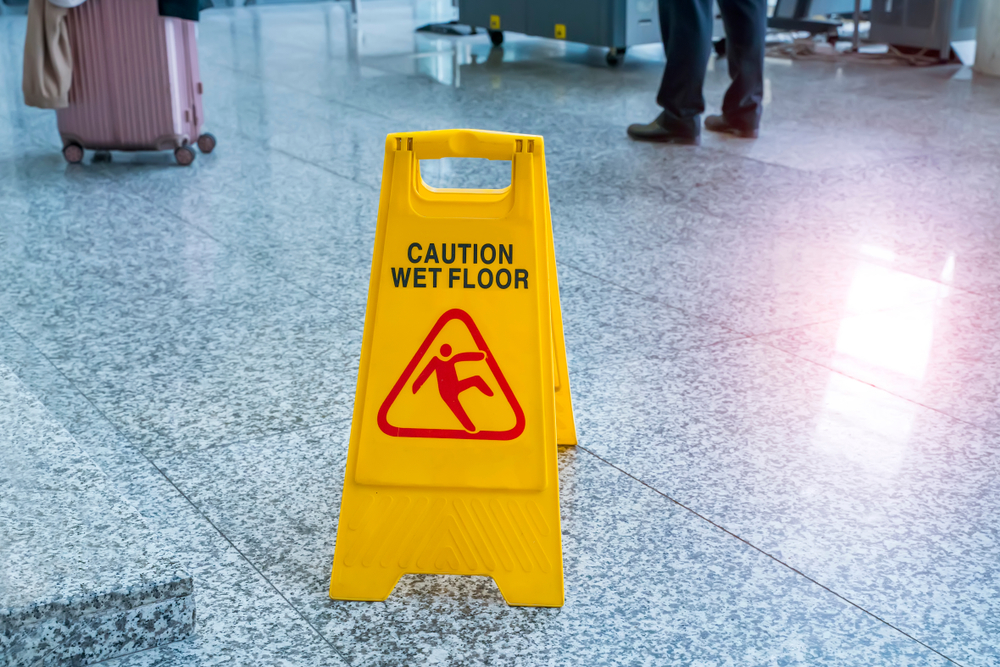
Slip-and-fall accidents can happen anywhere, anytime, and Pennsylvania is no exception. These accidents can result in painful injuries and, in some cases, significant financial and emotional stress. If you’ve experienced a slip and fall accident in Pennsylvania, you may wonder about liability and who is responsible for your injuries. This blog post will guide you through the process of determining liability in a slip and fall accident in the Keystone State.
What Is A Slip-And-Fall Accident?
A slip-and-fall accident occurs when an individual loses their balance and falls due to hazardous or unsafe conditions on someone else’s property. These accidents can happen in various settings, including retail stores, restaurants, private residences, and public places like sidewalks and parks.
In Pennsylvania, as in many other states, property owners are legally obligated to maintain their premises in a reasonably safe condition to prevent accidents like slips and falls.
Critical Factors In Determining Liability
Several factors come into play to determine liability in a slip-and-fall accident:
1. Property Owner’s Duty Of Care
Property owners owe a duty of care to visitors on their premises. The level of care owed depends on the visitor’s status:
- Invitees: These are individuals invited onto the property for business purposes, such as customers in a store. Property owners owe them the highest duty of care.
- Licensees: These are social guests or people on the property for non-business reasons. Property owners must warn them of known hazards.
- Trespassers: Property owners owe the least duty of care to trespassers, but they must still not intentionally harm them.
2. Unsafe Conditions
The critical aspect in determining liability is identifying unsafe conditions that caused the slip and fall. Common hazardous conditions include:
- Wet or slippery floors
- Uneven surfaces
- Poorly lit areas
- Broken stairs or handrails
- Debris or obstacles in walkways
3. Causation
Establishing a direct link between the unsafe conditions and the slip and fall is crucial. If it can be proven that the hazardous condition directly caused the accident, it strengthens your case.
4. Notice
Property owners may not be liable if they were unaware of the hazardous condition and had no reasonable opportunity to fix it. It’s essential to establish whether the property owner knew or should have known about the dangerous situation.
5. Comparative Negligence
In Pennsylvania, the principle of comparative negligence applies. This means that if you, as the injured party, are found partially responsible for the accident, your compensation may be reduced accordingly.
Steps To Determine Liability
1. Seek Medical Attention
Your health should be your top priority. If you’ve been injured in a slip-and-fall accident, seek immediate medical attention. Not only is this essential for your well-being, but it also creates a record of your injuries.
2. Document The Scene
If possible, take pictures of the accident scene, including the unsafe conditions that caused your fall. This visual evidence can be invaluable in establishing liability.
3. Identify Witnesses
Collect contact information from any witnesses who saw the accident. Their statements can help support your case.
4. Report The Accident
Notify the property owner or manager about the accident. Ensure that they create an incident report and ask for a copy.
5. Preserve Evidence
Keep any evidence related to your case, such as your clothing, shoes, and damaged items during the accident.
6. Consult An Attorney
Navigating the legal aspects of a slip-and-fall accident in Pennsylvania can be complex. It’s advisable to consult an experienced personal injury attorney who specializes in slip and fall cases. They can help you understand the nuances of liability and guide you through the legal process.
Determining liability in a slip and fall accident in Pennsylvania requires carefully examining various factors, including the property owner’s duty of care, unsafe conditions, causation, notice, and comparative negligence. Following the steps outlined in this blog post can help you protect your rights and pursue fair compensation.
Advocating For You After A Slip-And-Fall Accident
If you’ve been injured in a slip-and-fall accident and believe that the property owner is liable, it’s crucial to consult a knowledgeable attorney. The Law Offices of Mitchell Clair is here to provide the legal support and guidance you need. Our experienced team will evaluate the circumstances of your accident, gather evidence, and build a strong case on your behalf to ensure you receive the compensation you deserve.
Don’t let a slip-and-fall accident disrupt your life. Contact our personal injury law firm at (610) 940-5400 today for more information or to schedule a consultation.
